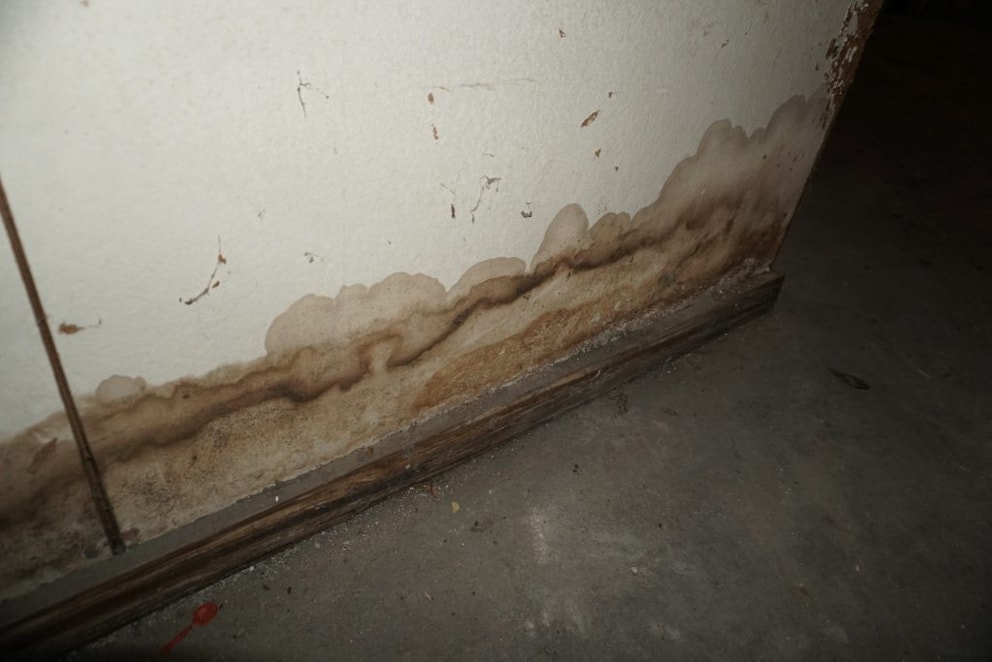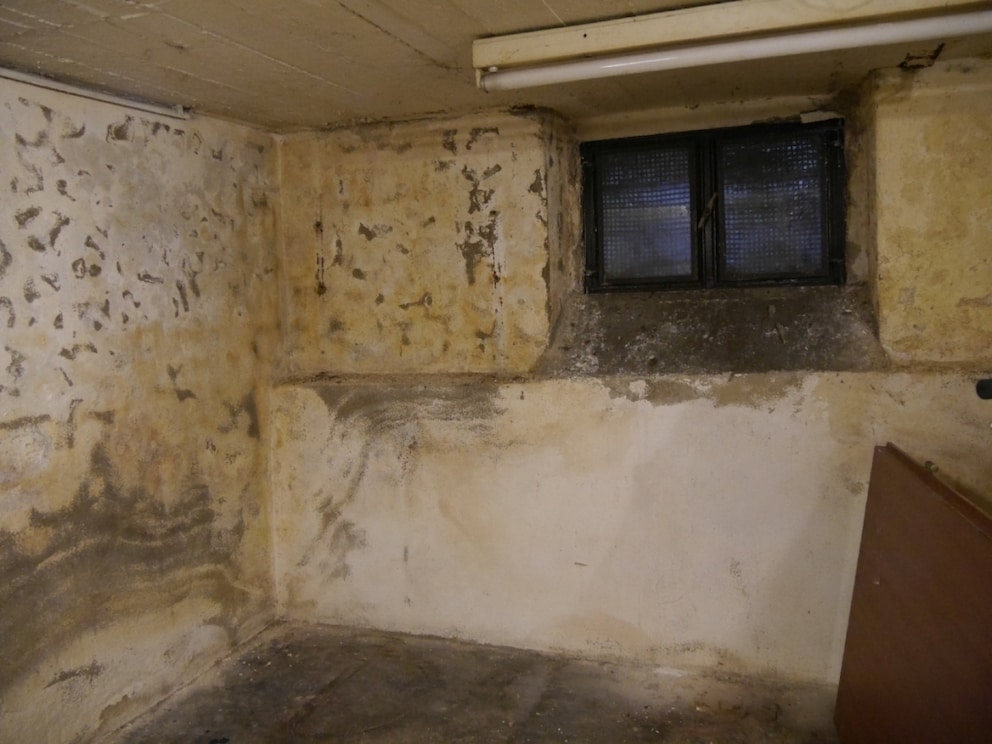February 8, 2024, 1:19 pm | Read time: 5 minutes
If there’s a musty smell in the basement or mold is already forming, it indicates damp walls. How can homeowners address this issue?
A damp basement is a common issue, especially in older buildings. If you notice moisture on the basement walls, it’s important to investigate the cause. The reason could be simple, but in some cases, it might be serious, as the inspection organization Dekra informs. myHOMEBOOK consulted a building expert to find out what to do about a damp basement.
How to Identify a Damp Basement
If the basement smells musty, there’s a damp spot on a wall, or there are early signs of mold, there could be various causes. For example, a lot of moist air from a laundry room–or simply insufficient ventilation.
To determine the cause, you should regularly ventilate for a period. Ideally, open windows and doors wide for a few minutes several times on dry, cold winter days, preferably with a draft. An exception: When cross-ventilating through multiple rooms, keep the door to a laundry room closed. You can then check if the moisture decreases or disappears over time.

Note: Dekra advises moving cabinets in the basement slightly away from the wall. This allows air to circulate behind them, reducing the risk of mold in these areas.
How Is the Basement Constructed?
According to Ulrich Opitz, an expert in building damage, you should first check whether the basement is a “white” or “black” tank. “A white tank is made of waterproof concrete, a black one of masonry with a bitumen layer,” the expert explains to myHOMEBOOK. In a white tank, penetrating moisture is unlikely, “unless the concrete is cracked or improperly installed.” It can also be problematic if a wall penetration in the basement is not well sealed.
In contrast, black tanks, which are sealed with bitumen from the outside, often suffer damage, especially in older buildings, the expert notes. Causes can include root growth or ground movement. Stones or gravel could damage the bitumen layer, allowing moisture to penetrate.
If an old black bitumen coating has deteriorated after 30 to 40 years, it needs to be renewed, advises Dekra. This requires digging around the house from the outside.

Related: Tips to Get Rid of Musty Smells in the Basement
Do You Need to Act on a Damp Basement?
“If a wall is damp, you should consider what you use the basement for,” Opitz explains. Basements in older buildings were often intended for storing potatoes and fuel. Opitz clarifies: “Unheated basements are not meant to be used as living space.” If the basement is not used for that purpose, it can be damp, according to the building expert. However, storing laundry there involves some risk. Anything not damaged by moisture can still be stored in the basement.
“I often see basements that are dripping wet. A damp basement generally doesn’t affect the building,” says the professional. If the joint in the masonry is visibly more than a third crumbly, it can be renewed.
What Are the Causes?
According to the Association of Private Builders, water or heating pipes in the wall could be damaged. A defective vertical seal can also be responsible for moisture damage, as it is supposed to prevent moisture from entering the building through the walls from outside.
The horizontal seal can also be defective or–as is often the case in old buildings–nonexistent. It normally prevents moisture from rising through fine pores from the ground into the house. It can be retrofitted, both from the inside and outside.
Opitz mentions another cause: the groundwater level might have risen. This can be checked with special measuring tools and so-called “ram filters.”
What Can Be Done About a Damp Basement?
“Getting a damp basement dry is difficult,” Opitz knows from experience. There’s not much you can do on your own. There are specialized companies that also provide a warranty for the renovation. “Every basement is different,” the expert explains. Therefore, there is no general solution for a dry basement.
The best solution, according to Opitz: dig around the outside and seal it. Then, directly install insulation in front of the wall. Once everything is sealed, you can also install drainage–”according to current guidelines.” Specialized companies would handle that as well.
“A proper external seal is often the better solution,” Opitz advises. “If you find a good company, they also provide a warranty.”
Are Dehumidifiers Useful?
In some cases, homeowners try to control basement moisture with a dehumidifier. However, Opitz advises against it. “A dehumidifier draws moisture from the air, making the wall drier. But if moisture then moves in, the process can even accelerate.”

How to Properly Ventilate Your Basement in Summer to Prevent Mold

Regularly Ventilate the Basement Even in Winter

Tips for Getting Rid of Musty Odors in the Cellar
When Should You Contact a Professional?
If the moisture cannot be eliminated with simple methods like ventilation, homeowners should contact a professional, according to Dekra. There could be a serious cause behind damp basement walls. In such cases, extensive and costly measures are usually necessary. Opitz also recommends this. Because: “An independent building expert doesn’t sell services”–unlike specialized companies.
With material from dpa

